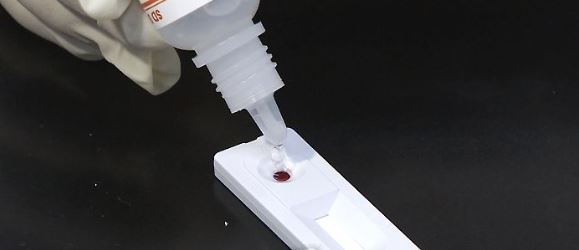Court orders compensation for demanding foreign teacher take HIV test
By Kim So-hyunPublished : Nov. 6, 2019 - 15:18
The Seoul Central District Court ruled that the Korean government must compensate an English teacher from New Zealand for demanding that she take a HIV test in 2009.
In the suit she filed against the government, the court ordered that the government pay her about 30 million won ($25,950) in damages.
The New Zealand citizen worked as an English teacher at an elementary school in Korea with an E-2 visa issued in 2008. She was told to take a HIV test while discussing the renewal of her contract the following year.
In the suit she filed against the government, the court ordered that the government pay her about 30 million won ($25,950) in damages.
The New Zealand citizen worked as an English teacher at an elementary school in Korea with an E-2 visa issued in 2008. She was told to take a HIV test while discussing the renewal of her contract the following year.

She lost her job after refusing to be tested, and filed complaints against the policy of mandatory HIV tests for foreign teachers with the National Human Rights Commission of Korea and the United Nations’ International Committee on the Elimination of Racial Discrimination.
In 2015, CERD said Korea had discriminated against her and she should receive “compensation for the moral and material damages she suffered.”
The NHRCK recommended in 2016 that the government stop requiring the mandatory HIV tests for foreign teachers.
In 2017, the government scrapped the mandatory HIV tests for E-2 visa holders seeking employment in local schools or private institutes.
The HIV and drug test requirement was introduced in 2007 for E-2 (foreign language instructors), E-6 (artistic performers) and E-2 (nonprofessional employment) visa holders.
In the suit filed by the New Zealander, the court said the mandatory HIV tests were against the law.
The Prevention of Acquired Immunodeficiency Syndrome Act says “no employer is allowed to request a worker to submit a written report generated from a medical examination for AIDS.”
The court ruled that this should apply to foreign workers as well.
Therefore, demanding a person who is not legally required to test for AIDS to submit an AIDS test report violates the law and fails to protect infected persons or those misunderstood as having been infected, the court said.
The government said that requiring teachers who have close contact with young students to take rigorous physical examinations for the safety of students does not violate basic rights.
The court said there was not enough data to conclude that HIV tests were necessary for foreign teachers at the time, and there was no reason to suspect that the plaintiff was infected after she arrived in Korea in 2008.
By Kim So-hyun (sophie@heraldcorp.com)








![[Graphic News] More Koreans say they plan long-distance trips this year](http://res.heraldm.com/phpwas/restmb_idxmake.php?idx=644&simg=/content/image/2024/04/17/20240417050828_0.gif&u=)
![[KH Explains] Hyundai's full hybrid edge to pay off amid slow transition to pure EVs](http://res.heraldm.com/phpwas/restmb_idxmake.php?idx=644&simg=/content/image/2024/04/18/20240418050645_0.jpg&u=20240419100350)






![[From the Scene] Monks, Buddhists hail return of remains of Buddhas](http://res.heraldm.com/phpwas/restmb_idxmake.php?idx=652&simg=/content/image/2024/04/19/20240419050617_0.jpg&u=20240419175937)

![[KH Explains] Hyundai's full hybrid edge to pay off amid slow transition to pure EVs](http://res.heraldm.com/phpwas/restmb_idxmake.php?idx=652&simg=/content/image/2024/04/18/20240418050645_0.jpg&u=20240419100350)

![[Today’s K-pop] Illit drops debut single remix](http://res.heraldm.com/phpwas/restmb_idxmake.php?idx=642&simg=/content/image/2024/04/19/20240419050612_0.jpg&u=)